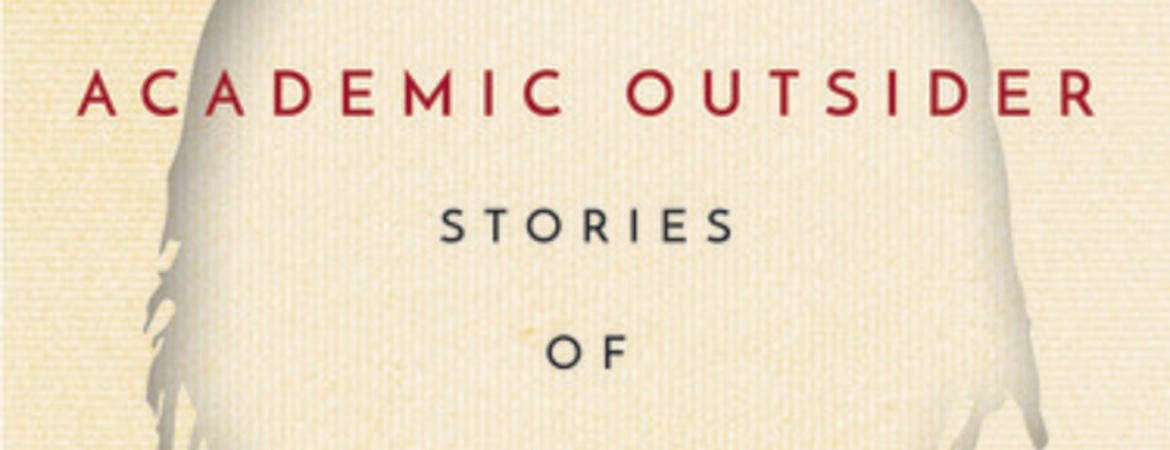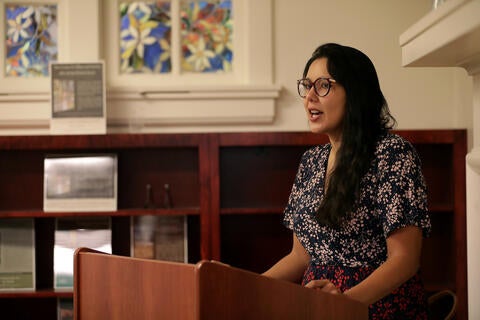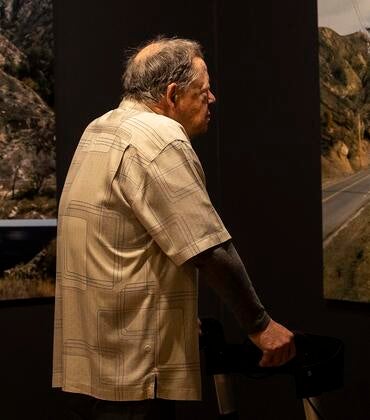
EDITOR’S NOTE: This story contains references to sexual violence
The first time Victoria Reyes realized her mother had been raped, she was in middle school. Reyes is the product of that rape. Her biological father is a member of her family.
Reyes herself was molested by a different family member at age 7. That’s when the incomparable sentiment of feeling unloved set in.
“I wish you had never been born. I should have had an abortion,” Reyes’s mother screamed at her during one of their many arguments. Those words shook her core. Reyes’s mother, now deceased, was only 15 when she gave birth to Reyes. The tumultuous childhood led her to constant moving, living in a multigenerational household, and eventually to decades of on-and-off therapy.
These life instances resurfaced for Reyes during the COVID-19 pandemic. The isolation, the stress caused by the constant change of rules, home and work expectations, and the uncertainty of it all, made her turn to writing in order to process feelings and thoughts. Reyes, an associate professor of gender and sexuality studies at UC Riverside, wrote profusely and last month published “Academic Outsider: Stories of Exclusion and Hope,” a 184-page book by Stanford Briefs, an imprint of Stanford University Press.
“I probably wouldn’t have written this book before the pandemic or right now,” said Reyes, who recently received the Association for Asian American Studies early career award. The recognition highlights innovative research in Asian American and Pacific Islander studies. “During the height of the COVID-19 pandemic professors had to continue teaching, publishing, researching. For me, I was in the same room with my daughter. She was in kindergarten, my son was 1-2 years old; my grandma, who lives with me, had a heart attack. It wore down a lot of what I could do. The chapter, ‘On Love and Worth,’ poured out of me. The pandemic collapsed the barrier I had between professional and personal life.”
Familial and professional demands also highlight what Reyes asserts in her book is racism and sexism in academia.
“This book also takes seriously the multifaceted experience of being an outsider,” Reyes said, indicating that her background does not fit the stereotypical professorial profile; she is a first-generation Filipina American, grew up in a poverty-stricken household, and is now dedicating much of her academic life trying to carve paths for her and others with similar backgrounds.
“I want other academic outsiders to know that there are those of us within the academy who see them for who they are, not just as grad students (for example) who need to prove their worth,” said Reyes, who in March published an article in Sociology Compass discussing the need to redefine and restructure sociology as a discipline. “This book is also a plea for those of us on the tenure track to enact change where we can, to not repeat or enable what’s harmful about our profession.”
As a trained sociologist and academic, Reyes’s writing offers a perfect combination of poetic prose, lived experiences, and social science research.
The research elaborates on racism and white supremacy, and how those contribute to the alienation of individuals. In United States academia, not just at UCR, she writes, the levels of scrutiny and marginalization are also visible, especially for graduate students, lecturers, and women faculty of color.
“Academic Outsider” is not meant to draw pity on her, nor is it meant for people to point to her as an example of what can be achieved, she said.
Throughout the six chapters, Reyes discusses the demand between professorship responsibilities and home life. The pages are filled with intimate stories about poverty, drugs, familial disputes, and the trajectory to becoming a professor. Reyes describes experimenting crack cocaine for the first time at age 14 — a couple months after confirming who her father was. The drug, she thought, would help her “not feel that pit of darkness that resided deep within me.”
“In the academic workplace, especially in elite spaces, the model background is far from my own. Any mention of any part of my life can immediately shut down conversation or evoke pity,” Reyes writes. “But I just want to be recognized and treated as fully human, a valued member of the academy, not as someone to be pitied or exalted. To just exist.”
As Reyes writes, she weaves in tough questions that press academia for answers, including questioning expectations and the hierarchy of departments. She urges colleagues, for example, to quote less famous authors, and discusses the need to reevaluate guidelines some peer review journals have as they evaluate research.
She provides ideas, reasons, and factual justifications of why academic justice, as she calls it, is a necessary change. One such change is the need to not see students as “empty vessels waiting to be filled by knowledge imparted by the instructor,” but rather seeing them as partners who bring their own respectable contributions.
“Academic justice also means seeing grades and assessments as mostly reflections of our own teaching methods and tools, rather than as a reflection of students and their capabilities,” she writes.
Every proposed change to improve the system will have drawbacks and pushback, because after all, “achieving justice is an ongoing, nonlinear process with small victories and steps backward, rather than a final destination,” Reyes writes.
But change needs to occur in small acts too, she said.
“It begins in how we approach our own and others’ researching, teaching, and service, whether that is in our writing groups, the peer reviews we write for journals and publishers, how we talk about and evaluate job candidates, and how we treat one another, with kindness and without regard to rank or the status of our workplace.”




